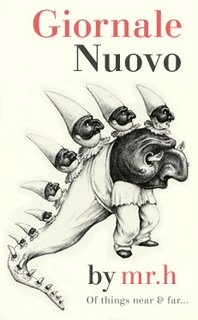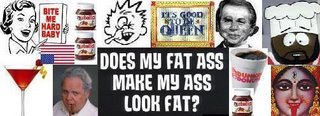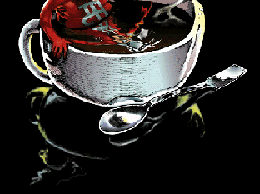Still Fab
Still Fab
Why we keep listening to the Beatles

By Charles Paul Freund
Is anything more intricately intertwined with its time than the career of the Beatles? According to the usual account, the group’s shifting personae, from the original 1964 mania through the 1970 break-up, either led or reflected the period’s changing tastes and behavior. For Americans of a certain age, it was seven delirious years of teenybopper screaming, androgynous hair-doing, cartoon-India meditating, psychedelic drug taking, syncretic sitar strumming, and all-you-need-is-loving.
Is that wrong? Surely not. If the increasingly brittle idea of "the ’60s" has any meaning aside from common nostalgia, it describes the transformation of a type of cultural fandom into a type of social and political identity. The Beatles managed to remain at the center of this phenomenon -- if not ahead of it -- as long as they existed. Their fans, primarily leading-edge boomers, became what they beheld. Which of them is not part Beatle?
Now another transformation is underway. Older boomers are starting to retire, enrolling in the AARP, and leafing uneasily through its Modern Maturity magazine. It may have helped their transition when, last year, Sir Paul McCartney appeared on Modern Maturity’s cover, with an interview inside about the losses, the challenges, and even the pleasures of growing older. Another boomer milestone, another Beatles persona. Nor is that the final such crossroads: Such Beatles songs as "In My Life" seem to be cued up regularly at boomer memorials.
So how is it that this year, Rolling Stone used its cover to proclaim the Beatles as the "World’s Hottest Band"? Since the release last November of 1, that compilation of 27 No. 1 Beatles hits has been selling at a pace that could make it the biggest-selling CD ever. How is it that a huge $60 volume called The Beatles Anthology, featuring old interviews and writings, is setting new sales standards for the coffee-table tome? The black-and-white Beatles movie, A Hard Day’s Night, has been back in theatrical release. Beatles hit singles are getting increased rotation even in radio contexts where they were sparingly played, such as on classic-rock album formats. A Beatles cookbook has somehow appeared (She Came in Through the Kitchen Window), and so has the Beatles’ "first and only official Web site," thebeatles.com. Even some out-of-print Beatles books are back, including a volume of post-Beatles interviews with John Lennon, then in his Lord Byron wannabe stage, in which he expresses his utter contempt for the Beatles.
"Their music doesn’t grow old," according to Beatles authority Bill Harry, compiler of the 720-page Ultimate Beatles Encyclopedia....
All you need is loving?
-Ib






































































































0 Comments:
Post a Comment
Subscribe to Post Comments [Atom]
<< Home